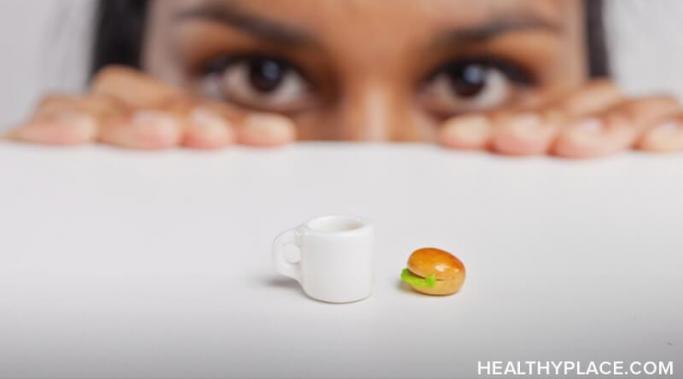While eating disorder recovery is more difficult under stress, I also find that my recovery has left me oddly prepared for the prolonged, relentless stress that COVID-19 has placed on the world. As the news keeps coming in, and precious little of it is good, I find myself surprisingly resilient. If I'm honest, part of me thought I'd break down, but I haven't. In fact, I'm staying strong.
About Surviving ED Authors
There is a documented prevalence of eating disorders in biracial women--but why? In this video, HealthyPlace "Surviving ED" co-author Hollay Ghadery discusses how her experience as a half Iranian and half white woman plays into these findings.
In my experience, people in the early stages of eating disorder recovery often rush their progress. Unfortunately, this rush adds pressure to an already stressful situation, which can cause people to experience more setbacks than necessary.
Traveling in recovery from an eating disorder poses some challenges. How big those challenges are will depend on where you are in your recovery. I've recently returned from a week-long vacation to Cuba with my family, and even a decade into recovery, I faced my fair share of hurdles.
I'm a huge supporter of ending the stigma surrounding all mental illnesses, which is why I support talking to your kids about eating disorder recovery. This said, as a mother of four children under nine years of age and someone who has been in recovery for a while now, there are two things I think everyone should consider before talking to their children.
Mantras for eating disorder recovery work for me. For example, I don't meditate. I have trouble sitting still for more than a few seconds. Even when I do yoga, it's the sweat until you vomit sort, not the calm, restorative kind. All this is to say the idea of mantras do not come easily to me, but using mantras for eating disorder recovery has been a powerful and subtle tool that helps me overcome negative thinking.
For those of us who have or have had eating disorders, the feeling of a full stomach can be an extremely disconcerting sensation. Sitting after a meal while feeling full can cause anxiety and guilt. I've been in recovery for nearly a decade and I still sometimes struggle with feeling full, but learning how to be okay with being full was an important step in my eating disorder (ED) recovery.
I don't believe in eating disorder triggers. Sounds pretty bold, right? We live in a world awash with eating disorder (ED) trigger warnings and those of us who are in ED recovery are constantly warned to avoid our triggers lest we slip back into old habits, and I straight-up say I don't believe in them.
Many people are often warned against exercising in eating disorder recovery, but that doesn't mean that exercise cannot be part of a healthy, vital recovery journey. In fact, regular and unapologetic exercise was a crucial part of my getting better.
New Year's Eve can cause eating disorders to flare up, and consequently, I don't have a single good memory of New Year's Eve. Not in my adult life, at least.









